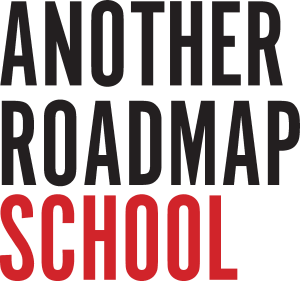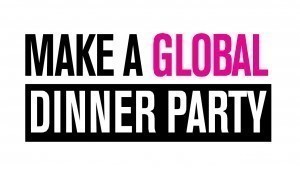Reading the
UNESCO Roadmap for Arts Education
(Lisbon, 2006), a group of activists, academics and art educators recognised the urgency to establish
Another Roadmap for Arts Education
which does not take for granted the positing of creative education in relation to the expansion of a creative class, or a creative economy.
The call for a “Global Dinner Party” invited art educators to discuss ways how to respond to the neoliberal discourse which functionalises arts and culture as used in the UNESCO Roadmap. Participants were asked to invite local stakeholders, educators, activists and teachers to discuss during dinner the significance of the UNESCO Roadmap in their own context and practice, make minutes and write up a report. The initiators expected to not only get an idea about the reception of this international policy document internationally, but also an inside view about conditions of art education locally and to learn about work of related radical education practices.
The call was published on the website of the IAE and circulated via email:
————————————————————————————————————
Making
another
Road Map for Arts Education
A Global Dinner Party!
On the occasion of the second UNESCO World Conference on Arts Education hosted in Seoul, South Korea, May 24-28, 2010 and the presentation of the document titled “Road Map to Arts Education: Creative Capacities for the 21st Century”, we invite critical artists/educators/cultural workers to host dinner parties around the world and plot alternatives.
Background:
The document titled ‘Road Map to Arts Education: Creative Capacities for the 21st Century’ was first issued on the occasion of the first UNESCO meeting in Lisbon in 2006.
Its main goal is to initiate action on different decision making levels, from government and the learning sector to the individual practicioner to implement quality art education in formal and informal learning on a global level.
Although we principally appreciate such an intent of international networking to emphasize the right of cultural participation, the document seems problematic to us for a number of reasons:
It charges creative education with everything from the health of the family, to the cultivation of self-management strategies such as improved ‘emotional intelligence’, to the training of a new precariat prepared for “demanding workforces that are creative, flexible and adaptable.” In addition to its developmentalist and eurocentric formulations of creativity and its resurrection of the genius concept, the document proposes that in creative education we find the production of informed consumers for an expanding market of cultural commodities. Such arguments either ignore the critical projects of arts pedagogy of the last decades or incorporate these projects into an overtly neo-liberal agenda.
Already now, before its official launch, the document is often quoted in the policies adopted by governments, academic and cultural funding bodies that shape our work as critical artists, educators and cultural workers. Therefore it is anything but irrelevant. It deserves a critical supplement – based on a critical appraisal of the people who are targeted by it and could not (for lack of invitation or will) contribute to the past negotiation process conducted by UNESCO.
We invite you to participate in the making of another Road Map, one that does not take for granted the positing of creative education in relation to the expansion of a creative class, or a creative economy.
What are your alternative reasons for doing the work of arts education?
How do these motivations influence what you do as artists/educators/cultural workers?
Send your reflections, manifestos, project examples and propositions to the ROADMAP to ANOTHER ARTS EDUCATION blog.
Participating is easy:
-
If you would like to participate, send an email to
iae@zhdk.ch
so that we can sign you up to the project blog. - Find a cheap venue and a food source in your city (we suggest potluck) or cook at home.
- Send out the invitation above to your favourite local critical pedagogues (or translate into terms more relevant for them).
- Read the Road Map to Arts Education document.
- Submit a 1-5 page record of your dinner conversations with your propositions and critiques to the project blog. English would be best but you can also write in the language you feel most comfortable.
- Read the contributions of others on the blog.
- Join with Janna and Carmen in a process of creating contributions for the ejournal issue next year.
This is a project of the
Institute of Arts Education
at
Zürich University of the Arts
.

